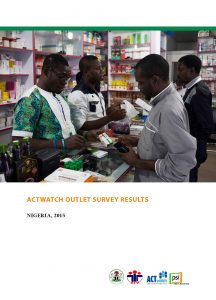Abstract
Malaria is considered to be a major public health problem in Nigeria, accounting for over a quarter of both malaria cases and malaria deaths worldwide in 2015. 1 Thirty percent of all hospital admissions and 60% of outpatient visits are attributable to malaria. Malaria accounts for an estimated 300,000 deaths in children under five each year, and 11% of the maternal mortality burden in Nigeria. 3 Malaria is endemic in Nigeria and 97% of the population is at risk.
Public health system
The public health system in Nigeria operates through three tiers, linked to the three levels of health care. At the highest level, the Federal Ministry of Health (FMOH) provides policy and technical guidance for the health sector. The FMOH also supports and manages tertiary-level care, research, and academic “centres of excellence”.
The 2012 Federal Ministry of Health directory of health facilities includes 30,098 primary health care facilities 3,992 secondary level facilities, and 83 tertiary facilities. Of the 34,173 total facilities, 66% are public. 4 As a general policy, healthcare consumers are expected to pay for curative services, but preventive services are often subsidized. In the public sector government agencies and partners are first line buyers and purchase medicines directly from manufacturers.



